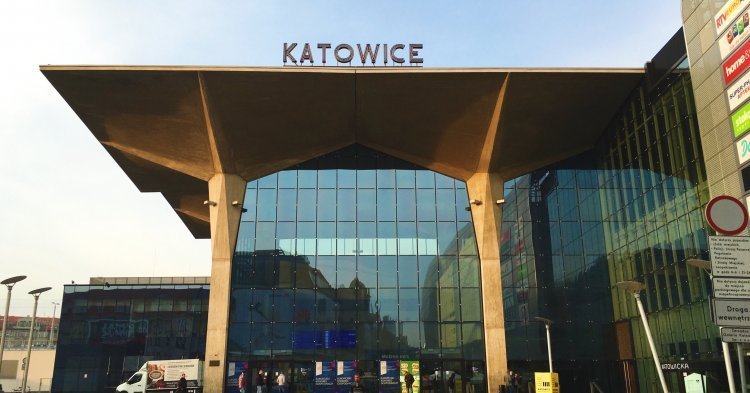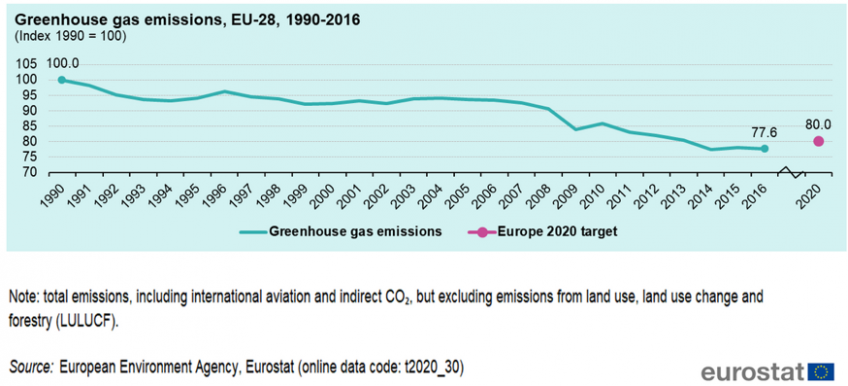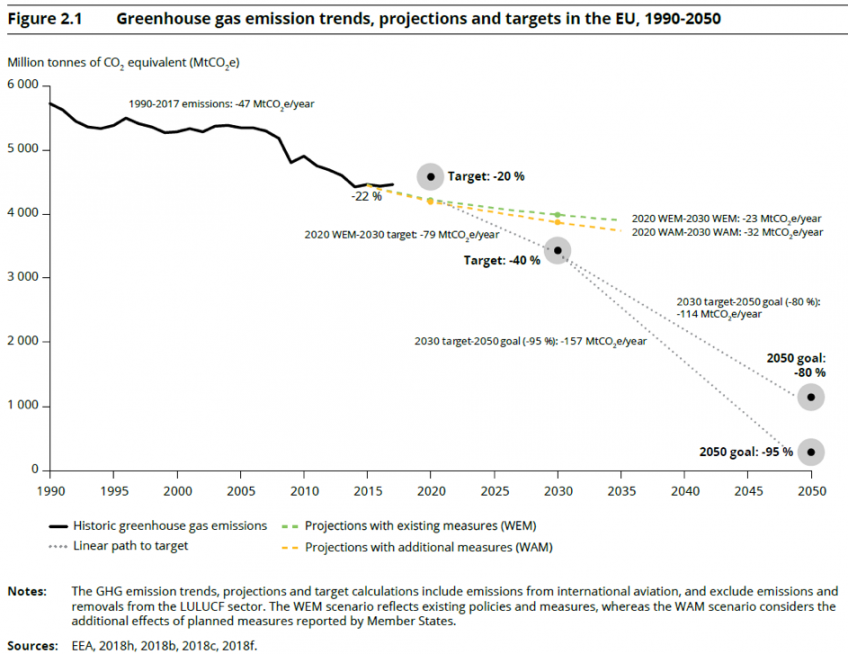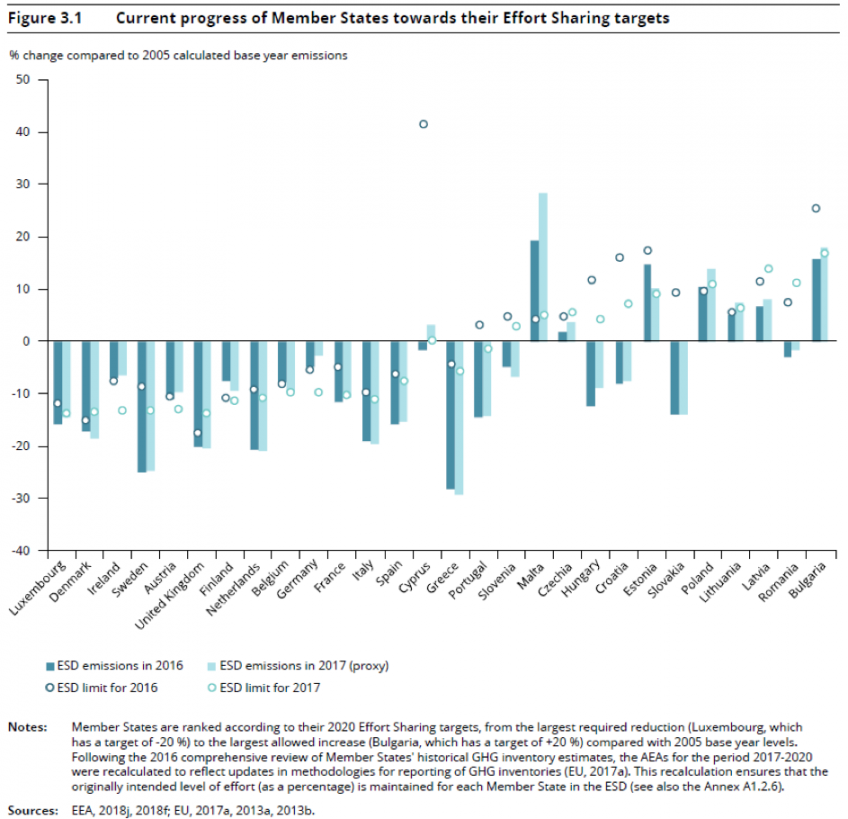A mixed bag
In 2010, when the European Commission proposed the Europe 2020 Strategy – a medium-term development strategy for the European Union aiming for “smart, sustainable, inclusive growth” – it had rather ambitious targets regarding tackling climate change. The Commission promised a 20% reduction in greenhouse gas emissions by 2020 compared to pre-industrial levels, a 20% increase in the consumption of renewable energies as part of overall European energy consumption, and a 20% increase in energy efficiency. Europeans in 2018 have reason to celebrate, as Eurostat data indicates that the EU is on track to achieve its target of a 20% reduction in CO2 emissions compared to the level in 1990.
However, if we look at the projections for 2030 or 2050, it is clear that Europe is still a long way off from achieving the goals it has set for itself. The European Environment Agency recently stated that the policies and measures currently in place will not be sufficient to achieve the goal of a 40% reduction in EU CO2 emissions by 2030.
Therefore, in order to achieve these climate goals, EU member states must act rapidly. However, the performances of individual member states are quite disparate, as evidenced in the graph below. Some states have already largely achieved their targets and thus contribute more and even compensating for other countries that are far from achieving these goals, such as Poland and Malta.
According to the same report from the European Environment Agency, the EU must make greater efforts to develop renewable energies, since they only constituted 17% of total energy consumption in 2016. The energy efficiency target is more difficult to reach in a context where energy consumption, after having slightly decreased between 2010 and 2014, is now starting to increase. Hence, we are faced with a mixed judgement as to how successful the EU member states will be when it comes to achieving the ambitious environmental targets set by the European Commission.
The European Commission’s ambitious plans for 2050
In the days in the run-up to the opening of the conference, Maroš Šefčovič, Vice President of the European Commission for the Energy Union, and Miguel Arias Cañete, European Commissioner for Climate Action, presented their long-term decarbonisation strategy for 2050. The key objective is for the EU to reduce its CO2 emissions by 80–95% compared to the 1990 level and achieve carbon neutrality by 2050; this would mean that greenhouse gas emissions would be equivalent to, if not lower than, the planet’s ability to absorb the amount of CO2 emitted daily.
This new, long-term strategy presents different scenarios for achieving carbon neutrality. It works towards the previously set objectives for 2030, which are to reduce CO2 emissions by at least 40% compared to 1990, to increase the usage of renewable energies until they constitute at least 27% of total energy consumption, and to increase energy efficiency to 27%. While this strategy does not present quantified objectives, it instead puts forward major milestones which are to be achieved. Bas Eickhout, Green MEP and Spitzenkandidat (lead candidate in the upcoming European Parliament elections) alongside Ska Keller, has strongly criticised the Commission for lack of ambition when tackling climate change. According to Eickhout, Europe cannot wait until 2030 to take additional action.
The international community faced numerous challenges at COP24. First of all, a reaffirmation of the Paris Agreement is necessary after the withdrawal of the United States, and an initial assessment of the efforts of the international community will be made. Above all, it’s now important focus on putting the objectives of the Agreement into practice. The international community must adopt concrete rules and guidelines to prevent an increase of global temperatures greater than 2°C. Laurence Tubiana, the former French representative at COP21, is concerned about the lack of action taken by states regarding climate change, while the matter continues to increase in urgency each day.
The road to achieving carbon neutrality is long and fraught with difficulties. The European Union will undoubtedly play a major role in these international negotiations since it has shown a high level of ambition. After the COP24 conference, that ambition must continue to overcome Warsaw’s pro-coal energy policy among other problems.






Follow the comments: |
|
